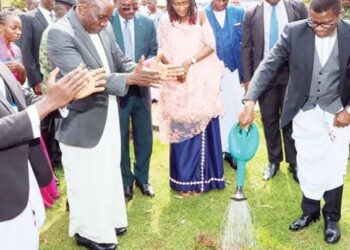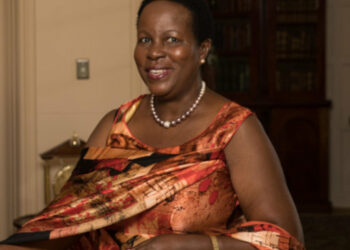By Denis Jjuuko
A month or so ago I visited a primary school near Masindi town and a secondary school in Gulu. The two schools enroll several pupils with hearing and visual impairments. The schools like the one in Masindi is a rural public school even when it is a few kilometres from town.
These schools aren’t for special needs students rather inclusive that admit everyone albeit with presentable units for children with visual and hearing impairment. To enable these schools to deliver better education to these children, some development agencies donated projectors, computers and recorders. The intention was always to support children with visual and hearing impairments.
However, things turned out differently and a revolution of sorts in the education sector might be happening where it was least expected. Teachers realized the projection of lessons in video format had an impact on all the children regardless of their impairment. Teachers realized too that they could use the internet to provide better experience to their students. I believe this is much more than what the agencies perhaps envisaged when designing the programmes.
Children with visual impairment, for example, have devices that are the size and shape of a feature mobile phone, which they use to record lessons to listen to during their revision time or even playback during classes. This device is mainly known as a Mobile Reader but you can call it a specialized audio recorder.
For the kids with hearing impairment, a projector comes in handy during classes or that is what people originally thought. It turns out it doesn’t really matter. A child without any impairment also learns better when he or she sees some of the stuff the teacher talks about in video form. Imagine a child being taught something as complex as a spinal cord — a video comes in handy than when they are just given images. You can say the same about the digestive system.
Or, imagine a child in rural Uganda being taught about the tallest building in Kampala or even the Jinja Nile Bridge, they would appreciate it better when they can see it.
Assistive devices such as the specialized audio recorder mentioned above can enable children during their revision time to crosscheck exactly what the teacher said during class.
There are many children today especially from middle-class backgrounds with tablet computers, which they use to simply play games yet they can be used as libraries with lessons loaded onto them so that they can easily learn. A tablet computer with storage of a couple of gigabytes can store all the lessons a child needs. These wouldn’t be just notes rather multimedia content per lesson.
I have heard some people complain that some kids in Kampala schools are suffering from back pains as a result of carrying bags full of books every day. Tablet computers or a specialized audio recorder could help solve this problem.
Also, the education sector could significantly reduce on the sizes of libraries they have to build as a tablet or device that can store audiobooks becomes a library. Children could end up with their own library accessible all the time. It would also open up a lot of possibilities for learning.
In under a year, students with visual impairment in senior one in Gulu had mastered using computers to type their exams and coursework. Yet I know bright university students without any impairment that can’t type their coursework. This is because they have grown up on “analogue systems.” Schools have built computer labs but you hardly find kids who are actually good with something as basic as typing.
Some even finish university when they can hardly use a computer. They know how to update their social media pages but that some time is it. How will they compete when using MS Word is such a hustle?
I know that there is a big market for schoolbooks making some authors millionaires. They can still author books and find a way to encrypt them so content isn’t freely shared from one device to another afterall photocopying technology didn’t get them out of business. They can also look for other models to make money from their work. And of course digital libraries won’t kill the book industry.
Children still need to learn to read and write so paper won’t go away. Computers and recorders are only assistive.
The writer is a Communication and Visibility Consultant. djjuuko@gmail.com
Do you have a story in your community or an opinion to share with us: Email us at editorial@watchdoguganda.com











